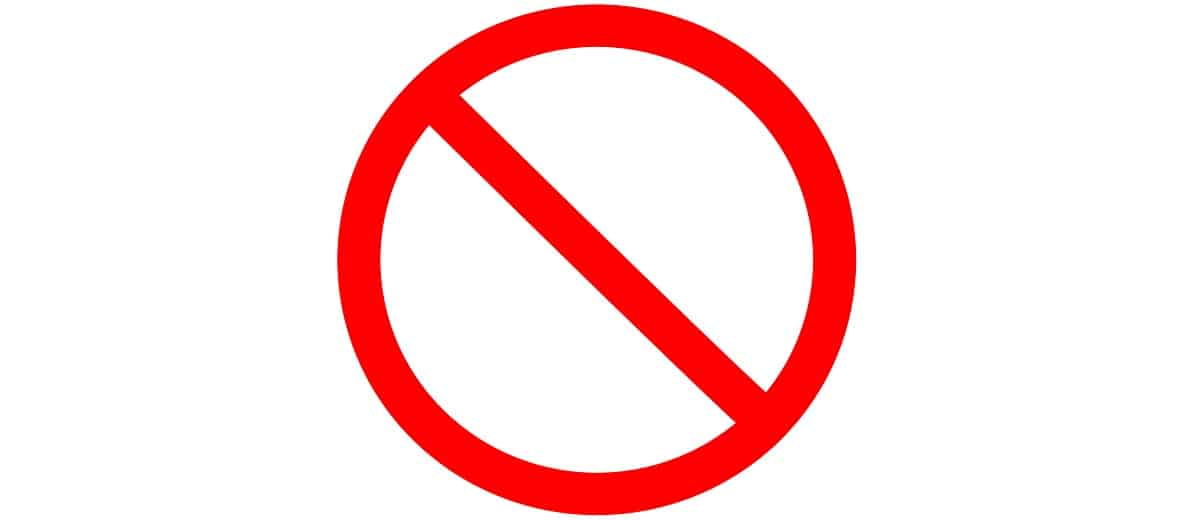If you’re running a website, climbing up the search engine ladder is probably high on your to-do list. You might have heard about ‘backlinks’ and how they can be a game-changer for your site’s traffic, as well as its reputation with search engines. It’s like walking through a minefield, though—you’ve got to watch your step to avoid any missteps that could lead to your site being ignored, or worst, penalized. Join us on this guide as we unpack the secrets of effective backlinking. We’re here to arm you with the know-how and tools you need to boost your website’s profile and draw in more visitors naturally. Don’t let the jitters over backlink removal hold you back and learn when it’s beneficial to get your backlinks disavowed.
What are backlinks, and how do they work?
Imagine backlinks as little signposts scattered across the internet, all pointing visitors in the direction of your website. These signs help search engines figure out which sites are relevant to each other.
When a website links to yours, think of it as a thumbs-up for the quality and relevance of what you’re offering. Search engines see these thumbs-ups as votes of confidence, helping to establish your site’s authority. The more thumbs-ups—or high-quality backlinks—you get, the more likely search engines will view your site as a go-to place, which could give your rankings a nice bump.
But keep in mind, not every backlink is created equal. The value of a backlink depends on things like how reputable the linking site is, how related it is to your content, and its own standing with search engines. A nod from a respected website means a lot more than one from a no-name or spammy site.
Types of backlinks – natural, manual, and toxic
Backlinks come in three flavors: natural link building, manual link building, and the kind you want to steer clear of — toxic backlinks.
- Natural backlinks are like winning an award. They happen when other websites link to you because they genuinely think your content rocks. Search engines love this kind of organic endorsement.
- Manual backlinks are the result of rolling up your sleeves and getting to work—think guest blogging or reaching out to other sites. Manual link building wonders, provided they’re top-notch and make sense for your niche.
- Toxic backlinks are the bad apples. They usually come from sketchy places like link farms or dodgy directories and can torpedo your SEO efforts or even get you slapped with penalties from search engines. This is the type of backlinks that you need to get disavowed.
Getting to grips with these types of backlinks is crucial for putting together an SEO strategy that piles up the good stuff and keeps the bad at bay.
The significance of quality backlinks for search engine rankings
Quality backlinks are the secret sauce for boosting your website’s position in search engine results. Think of these links as a thumbs-up from the web, telling search engines that your site is a trusted resource worth paying attention to.
Having a strong collection of quality backlinks is like having a crowd vouch for you—it tells search engines that your site is the real deal, which can lead to better rankings and more visitors clicking through to your content. On the flip side, if your backlink profile is filled with low-quality links, it’s like having a bad reputation—search engines might penalize you, pushing your site down the ranks.
Investing time into gathering solid, relevant backlinks isn’t just a good practice—it’s a strategic move that can pay off by improving your visibility in search results, drawing in the right crowd, and, ultimately, helping your business thrive.
Building High-Quality Backlinks: Strategies for Success
To build a foundation of high-quality backlinks, consider these tried-and-true strategies:
- Content Creation and Promotion. Kick things off by creating content that’s so good people can’t help but link to it. Then, get the word out by sharing your content on social media and industry forums and reaching out to related websites. This increases the odds of snagging those prized backlinks.
- Guest Posting. Write guest posts for blogs and websites within your industry. It’s a win-win: you share your know-how, make new connections, and earn valuable backlinks.
- Broken Link Building. Look for broken links on sites that matter to your audience and offer up your content as a replacement. This tactic not only gets you a backlink but also improves the hosting site’s user experience.
- Collaboration and Partnerships. Team up with other businesses, influencers, or experts to create joint content or events. These partnerships can lead to great backlinks and introduce you to a wider audience.
- Leveraging Existing Relationships. Don’t forget about the contacts you already have. Reach out and ask for backlinks to your site—it’s often an easy way to get quality links.
- Participating in Online Communities. Participate in online communities like forums, Reddit, or Quora. Offer helpful advice and insights, and you might just earn backlinks as a respected voice in the community.
Remember, the key to building high-quality backlinks is to produce valuable content and nurture authentic relationships with other sites and industry figures.
Common Mistakes to Avoid When Building Backlinks
To keep your search engine rankings safe, steer clear of these common backlink-building blunders:
- Engaging in Link Schemes. Stay away from buying links or swapping them; it’s risky and could get you a penalty.
- Low-Quality or Irrelevant Links. Links from spammy or unrelated sites can drag your rankings down.
- Overusing Exact-Match Anchor Text. If you overdo it with exact-match anchor text, search engines might think you’re trying to game the system.
- Ignoring Your Backlink Profile. Keep an eye on your backlinks to avoid a buildup of bad ones.
- Not Disavowing Toxic Backlinks. Make sure to disavow harmful backlinks to sidestep penalties.
- Prioritizing Quantity Over Quality. Focus on securing backlinks that are high-quality and relevant, rather than just collecting as many as possible.
By avoiding these pitfalls and focusing on a healthy backlink profile, you can leverage backlinks to boost your website’s visibility and draw in more traffic.
Monitoring and Analyzing Your Backlink Profile
Monitoring your backlink profile is a crucial part of maintaining a strong SEO strategy. Here’s why it’s important and how to do it right:
- Spot Toxic or Low-Quality Links. Regular check-ups can help you catch harmful backlinks early, so you can take steps to address them.
- Evaluate Backlink Quality and Relevance. By analyzing your backlinks, you gain insights into their quality and relevance, helping you focus on acquiring the best links for your site.
- Observe Profile Growth and Changes. Keeping an eye on how your backlink profile changes over time can tell you a lot about the effectiveness of your link-building efforts and where you might need to make improvements.
- Discover New Link-Building Opportunities. Analysis could reveal new potential sources for backlinks, such as websites that link to your competitors but not to you.
Tools like Google Search Console, Ahrefs, Moz, or Semrush are invaluable for getting a detailed look at your backlink profile, including the quality of your links, growth trends, and any issues that might arise.
Regular monitoring helps ensure that your link-building strategies are up to the required standard and that bad backlinks aren’t dragging down your search engine rankings.
Understanding Disavowal and Its Importance in SEO
Disavowal is a tool for telling search engines which backlinks they should ignore when assessing your site’s authority. It’s especially useful for dealing with harmful backlinks that could hurt your search engine rankings.
When to Consider Getting Backlinks Disavowed:
- Toxic or Spammy Backlinks. If shady link schemes have left you with toxic backlinks, disavowing them is key to avoiding penalties.
- Low-Quality or Irrelevant Links. Backlinks from low-authority or unrelated sites can weaken your SEO. Disavowing these can clean up your backlink profile.
- Links from Hacked Sites. If compromised websites are linking to yours, disavow those links to dodge any negative fallout.
- Links from PBNs. If you find backlinks from personal blog networks (PBNs), it’s smart to disavow them since search engines often dislike them.
To get backlinks disavowed, use tools like the Google Search Console Disavow Tool to submit a list of the links you want Google to ignore.
By keeping a close watch on your backlink profile and disavowing any toxic links, you can protect your website’s standing in search results and avoid possible penalties.
How to disavow backlinks in a few steps:
- Identify Toxic Links: Use tools like Google Search Console, Ahrefs, or Semrush to spot toxic or low-quality backlinks.
- Categorize the Backlinks: Organize the toxic backlinks you’ve identified by source, quality, or other criteria to decide which ones to disavow first.
- Gather Link Information: Collect details for each toxic backlink, such as the URL of the linking page, the anchor text used, and the target URL on your site.
- Create a Disavow File: Put together a Disavowed File in a text editor, listing entries like domain:example.com and the URLs of the linking pages.
- Upload the Disavow File: Use the “Disavow links” tool in Google Search Console to upload your file, telling Google which backlinks to disregard.
- Monitor and Update: Keep an eye on your backlink profile and refresh your Disavowed File as necessary.
Remember, getting your backlinks disavowed is a last resort after trying to remove the links directly. It’s a continuous process, as new low-quality links can pop up at any time.
Final Thoughts: Getting Backlinks Disavowed Is Sometimes Necessary and Beneficial
Backlinks are a cornerstone of any solid SEO strategy. Understanding their importance, the different types, and how to manage them effectively is crucial for anyone looking to improve their site’s visibility and traffic in search engines.
Avoid traps like participating in link schemes or collecting poor-quality links. Focus instead on creating valuable content, building genuine industry relationships, and employing tactics like guest posting, broken link building, and community involvement.
Consistently reviewing and analyzing your backlink profile is vital for a sound SEO approach. Identifying harmful backlinks and getting them disavowed is essential for protecting your site’s ranking and adhering to SEO best practices.
When it comes to getting relevant links, bringing in a pro like Outreach Bee can make all the difference. Our team knows the ins and outs of SEO, from scouting top-tier websites for outreach campaign to crafting killer articles for your outreach efforts. Got questions? Reach out to us now, and learn how we can give your link-building strategy a serious boost. You can also send us a message via Facebook and/or Linkedin.



PPC VS SEO: Which One Should You Go for?
What is link juice in SEO, and how can you acquire it?